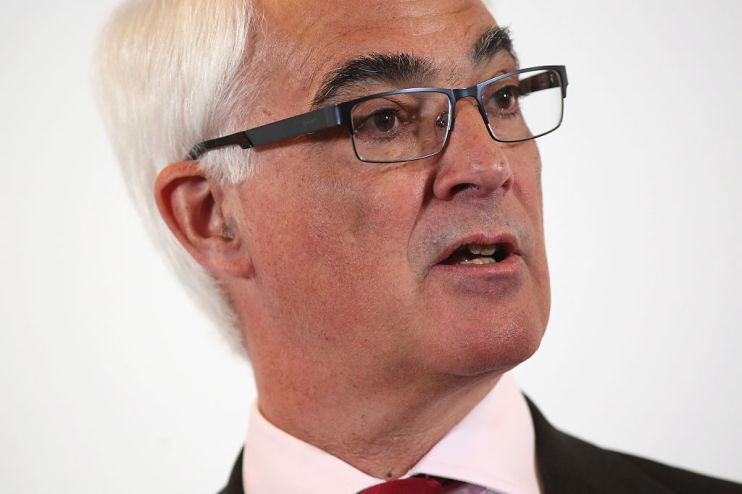Ex-chancellor Alistair Darling calls for coronavirus VAT cut

Former Labour chancellor Alistair Darling has called for the government to temporarily cut VAT to help people deal with the economic fallout from the coronavirus crisis.
Darling, who was chancellor during the 2008 financial crisis, told a virtual Policy Exchange event today that the Treasury had to start doing “things that can be done fairly easily” to ease people’s financial burdens.
He said a temporary VAT cut of 10 per cent, as he did during the 2008 crash, would be “very easy to administer” and “seems to have an effect”.
He added: “Perhaps there will be a recognition that governments, the state, is not just the lender of last resort and the insurer of last resort, but it may for a while be the provider of last resort.”
Former Bank of England governor Mervyn King also spoke at the event, urging the government to develop an “exit strategy” for the country to move out of lockdown.
King, who was governor during the 2008 financial crisis, also urged the banks to keep their branches open.
He said: “Now what we now need, is the banks and the people who work in branches around the country, to be there whether it’s on the telephone and in person if necessary, to talk to businesses so that the emergency loans, which in principle are available, are available in practice.”
King’s comments come as stories have emerged of some banks trying to set onerous interest rates for businesses trying to access loans as a part of the government’s coronavirus business interruption loan (CBIL) scheme.
The government-backed loans are interest free for the first 12 months.
The government has asked banks to act in good faith when setting loan conditions beyond the first year.
Speaking to a group of journalists today, a Treasury spokesperson said: “The chancellor is clear the purpose of the government guarantees is to make these loans as accessible as possible to those who need support and that should they should be value for money reflecting the government’s generosity and the purpose of the scheme.”